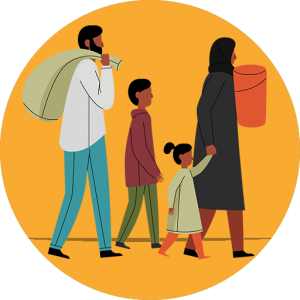Alongside international and government efforts to address Somalia’s protracted displacement crisis, the United Nations’ Regional Coordinator Office (RCO) is supporting a shift to area-based approaches, in which collective outcomes shape and integrate durable solutions programming to maximise efficiency and effectiveness. Crucial to the relevance and success of this process, is that the development of collective outcomes is grounded in the realities of displacement-affected communities.
Yet meaningful engagement of displaced groups in decision-making is challenging to achieve in the Somali context. Existing large-scale methods to hear from citizens such as perception surveys often lose crucial qualitative detail, risk being one-way and extractive, and are rarely representative in the Somali context.
To strengthen the RCO’s efforts, Africa’s Voices deployed the Common Social Accountability Platform (CSAP), our flagship initiative that leverages our unique interactive radio methodology to enhance the accountability landscape in Somalia. The CSAP campaign delivered an interactive radio series across four weeks between July and August 2019, targeting listeners in Baidoa and Bossaso.
Audiences were invited to respond via SMS to open-ended questions that covered the following priority topics:
In line with CSAP’s approach to building a large-scale public dialogue, the content of the weekly shows was shaped by the audience perspectives, which in turn drive interviews with guests to create an integrated community discussion space.






In Baidoa, 736 individuals participated in the discussion, 45.2% of whom were living in IDP camps. Of those, 77% were recently displaced. Participation was lower in Bossasso (a symptom of a short radio engagement cycle) with 412 individuals sending messages to the shows. 41.4% of them were IDPs of whom 67% were recently displaced.
The radio consultations revealed a clear disconnect between citizen perception and government action on displacement, with some citizens in both cities reporting a lack of government response. Nonetheless, across the four weeks of discussions, citizens emphasised that support to displacement-affected communities should be the government’s responsibility.